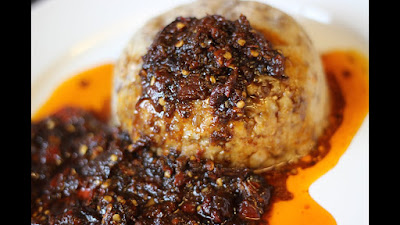HEALTH RISK OF EATING RED MEAT
The question is does eating red meat increase the risk of dying of heart disease or cancer?
It’s a question that keeps coming up, by research and high-profile campaigns.
For heart condition, the solution is pretty clear. Some red meats are high in saturated fat, which raises blood cholesterol. High levels of LDL cholesterol increase the danger of heart condition. When it involves cancer, the solution isn't so clear. Many researchers say it does raise the danger, especially for colorectal cancer.
HEART DISEASE
Red meat, specifically processed meat, may increase your risk for heart condition. Researchers at the Harvard School of Public Health analyzed quite 20 studies and located that eating 50 grams -- about half the dimensions of a deck of cards -- of processed meat per day increased the danger of heart condition by 42 percent. Processed meat includes any smoked, cured or salted meat, like hot dogs, bacon, salami, luncheon meats and sausage. Furthermore, the fat and iron in meat may increase oxidative stress and inflammation within your body, which may also contribute to heart condition and stroke.
DIABETES
A diet heavy in red meat increases your risk of developing type 2 diabetes, according to an article published in the August 2011 "American Journal of Clinical Nutrition." Researchers of the article examined data from two large studies and found that a 100-gram daily serving of unprocessed red meat increased the risk of type 2 diabetes by 19 percent. Processed red meat posed an even greater threat, increasing the risk of type 2 diabetes by 51 percent when subjects consumed only 50 grams per day. You can decrease your risk of type 2 diabetes by replacing red meat with a serving of nuts, low-fat dairy or whole grains, all of which decreased the risk by approximately 20 percent when substituted daily.
CANCER
Eating an outsized amount of meat may increase your risk of certain sorts of cancer, like stomach, colorectal and esophageal cancer. When meat is cooked at high temperatures or processed in certain ways, carcinogens, or cancer-causing compounds, can form. Ingesting these carcinogens together with your food increases your risk of developing cancer. Although non-meat foods also can form an equivalent carcinogens, researchers believe the heme iron contained specifically in meat increases carcinogen formation. consistent with the American Institute for Cancer Research, limiting your consumption of meat to 18 ounces per week and avoiding processed meat will reduce your cancer risk.
MORTALITY
Research clearly shows associations between high red meat consumption and increased risk of mortality. A study published in the March 2012 issue of "Archives of Internal Medicine" revealed a 13 percent increased risk of all-cause mortality when subjects consumed one 3-ounce serving of unprocessed red meat per day. One serving of processed red meat, on the other hand, related to a 20 percent increased risk of all-cause mortality. The evidence also shows that consuming one serving of red meat per day significantly increases your risk of dying from cardiovascular disease or cancer. Conversely, researchers estimated replacing one serving of red meat per day with a serving of another food, such as fish, poultry or nuts, would actually decrease your risk of mortality by up to 22 percent.
In general, red meats (beef, pork and lamb) have more saturated (bad) fat than chicken, fish and vegetable proteins such as beans. Saturated and trans fats can raise your blood cholesterol and make heart disease worse. ... You can prepare them without saturated and trans fats for a healthy meal.
here are the kind of meat that is healthy for you if you should eat meat at all
- Turkey (HEALTHY)
- Chicken (HEALTHY)
- Pork tenderloin(HEALTHY)
- Grass-fed beef(HEALTHY)
- Pheasant(HEALTHY)
- Bison(HEALTHY)
- Veal(HEALTHY).


.jpeg)


Comments